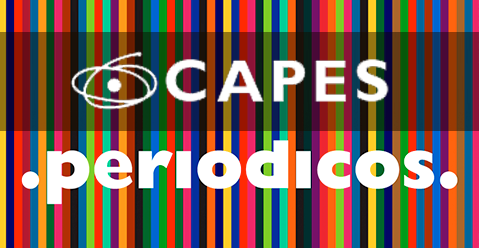Call for Paper Vol 8, nº. 2: “Studying Samba” Transdisciplinary studies on the sambas of Bahia and Brazil.
Revista Pontos de Interrogação: Revista de Crítica Cultural
Revista do Programa de Pós-Graduação em Crítica Cultural da UNEB
Vol 8, n° 2, jul./dez. 2018
ISSN 2178-8952
Indexador: http://www.revistas.uneb.br/index.php/pontosdeint
"Studying the Samba". Transdisciplinary studies on the sambas of Bahia and Brazil.
Organizers:
Prof. Dr. Ari Lima, Universidade do Estado da Bahia – UNEB, Brasil
Profa. Dra. Katharina Döring, Universidade do Estado da Bahia – UNEB, Brasil
Prof. Dr. Tiago de Oliveira Pinto, Universidade de Weimar, Alemanha
Description:
In recent years, the patrimonialization of the Samba de Roda do Recôncavo Baiano and its inscription on the Representative List of Intangible Heritage of UNESCO has generated some estrangement in the Brazilian cultural and sociopolitical scene. First, by the shift of the discursive authority to a white middle-class and cultural elite that claimed to speak for samba and the sambadores, who are black, rural, economically fragile, but practitioners of an informal musical and aesthetic expression. Secondly, because it has weakened a certain critical consensus around the national samba that was consecrated in Rio de Janeiro at the beginning of the 20th century. Consequently, after nearly 15 years since the patrimonialization of the Samba de Roda, we encounter a very different scenario regarding the old samba of Bahia, even if political and social conflicts remain - the struggle against racism, misogyny, homophobia, generalized socioeconomic inequality - which almost erased essential elements of samba. In this sense, it is worth noting the greater visibility achieved by diversified black musical traditions, the implementation of incipient public policies, a greater circulation of cultural and artistic productions, as well as the growth of academic studies regarding these musical and scenic traditions. Today, there is a consistent transdisciplinary body of knowledge and studies about the Samba de Roda, about urban sambas, about Black and Afro-Amerindian music and dance forms in the process of being patrimonialized: the jongo, the tambor de crioula, the carimbó, the coco, capoeira, maracatu, congadas, samba rural of Bumbo (SP), the samba roots of Rio de Janeiro, among others.
We believe that this is the moment to give new impetus to the dialogue among the various disciplines, in order to insert Samba de Roda and related phenomena into history and in its current social and musical context. It is about amplifying knowledge regarding the unfolding of the sambas from old and new conflicts, as well as about coming to new understandings, clarifying the advances by facing old dilemmas, in the execution of work programs, giving feedback and reflecting on the contexts of the various sambas and related Afro-Amerindian music and dance traditions.
To stimulate this dialogical proposal, we invite researchers from different areas to contribute articles, interviews, reviews of classic books, and also creative writing - a short story, for example, up to 20 pages, that address the following questions:
1. Exchange of knowledge about sambas and other Afro-Brazilian and Afro-Amerindian music and dances in general, based on the transmission of knowledge from one generation of practitioners to the other.
2. Performance studies: rituals, parties, festivals, identity construction, daily scenes, motion capture of dance movements and instrumental techniques.
3. Professional productions and their commercial negotiation.
4. African and/or Afro-Brazilian music and ancestry as historical fact, political and cultural concept, social and personal identification.
5. Public policies, cultural markets and community actions aimed at sambas and other related music and dance forms.
6. Samba de Roda as a cultural artifact that is elaborated and affirmed between the intangible and the material.
7. Intangible cultural heritage: its definitions, its dynamics and its renewing potential for the different theoretical currents about culture, such as Samba de Roda.
8. The substitution of the unilateral research-informant relationship by collaborative research with the sambas’ culture bearers.
9. Production of records, documentaries and cultural projects by the articulation of memory for the empowerment of the researched communities.
10. At the moment when the patrimonialization of cultural elements takes place, there is "shared patrimony": who has real knowledge about heritage, who puts it into practice and transmits the necessary knowledge about it? What are the mechanisms that increase the number of agents who share in this patrimony?
11. Fluid boundaries between genders, events, spaces and actions in the sambas, in the songs and related dances.
12. Sambas, prayers and oral poetics in the urban peripheries, in the coastal areas and in the backlands (sertões).
13. Sound and motion structures, acoustic-motional actions, "acoustemologies" and soundscapes.
14. Stability of musical structures in the face of social transformations and instabilities.
15. Sambadores, sambaristas or sambistas, angoleiros and angolistas, toques that are “amarrado,” “solto,” and “atravessados”: native terminology and its intrinsic knowledge.
16. Sambistas, sambões and pagodeiros in spaces and circles of urban negritude.
17. Musical transculturation in the Recôncavo Baiano: Samba de Roda, capoeira and candomblé.
18. The national samba beyond a supposed centenary of its history - the weight of the historiography of samba in Rio and the reinvention of spaces, informal groups (ranchos) and samba schools.
Submissions must be made through the site. Register and attach your text.
https://www.revistas.uneb.br/index.php/pontosdeint/index
The deadline for submissions for vol 8, n.2, jul.-dez., 2018 is august 31, 2018.
Guidelines for authors:
https://www.revistas.uneb.br/index.php/pontosdeint/about/submissions#authorGuidelines






















